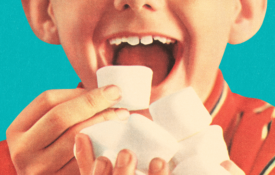-

New Content From Current Directions in Psychological Science
A sample of articles on intolerance, social-structure learning, personality change, learned preferences, effects of teachers’ instructional language, and collective emotions. Visit Page
-
All That Performative Environmentalism Adds Up
My newly adopted home state is on fire again: Scorching heat and lightning strikes have sparked dozens of fires across California, burning an area the size of Rhode Island. Iowa is reeling from a deadly derecho. The Mountain West is suffering through a severe drought. Towns and cities all over are experiencing one of the hottest summers on record, if not the hottest. And a hurricane just tore through the Gulf Coast. With climate change making extreme weather events more intense and more common, and Congress continuing to ignore this existential threat, I have tried to do my part. After moving to California, I went on a no-buy streak.
-
How Our Brains Numb Us To Covid-19’s Risks — and What We Can Do About It
Back in March, going just about anywhere felt like entering a combat zone. As covid-19 case counts rose across the country, I quaked at the prospect of going to the grocery store. I donned my mask and tried not to inhale as I threaded through the aisles, dousing myself with sanitizer as soon as I got out. But as the pandemic stretched into summer, my vigilance began to flag. Trips to the grocery store started to seem routine again rather than cause for panic. In June, I signed my oldest son up for summer camp — albeit one with campers confined to small groups. And I hope to send both my kids back to the classroom when school officially reopens.
-

Children Will Wait to Impress Others—Another Twist on the Classic Marshmallow Test
When it comes to self-control, young children are better able to resist temptation and wait for greater rewards if they take into consideration the opinions of others. [September 9, 2020] Visit Page
-
Time to Ditch ‘Toxic Positivity,’ Experts Say: ‘It’s Okay Not To be Okay’
In the midst of a raging pandemic and widespread social unrest, these days it can feel as if reassuring platitudes are inescapable. “Everything will be fine.” “It could be worse.” “Look on the bright side.” But as well intentioned as those who lean on such phrases may be, experts are cautioning against going overboard with the “good vibes only” trend. Too much forced positivity is not just unhelpful, they say — it’s toxic.
-
In Defense of the Psychologically Rich Life
What does it mean to live a good life? This question has been debated and written about by many philosophers, thinkers and novelists throughout the course of humanity. In the field of psychology, two main conceptualizations of the good life have predominated: A happy life (often referred to as “hedonic well-being”), full of stability, pleasure, enjoyment and positive emotions, and a meaningful life (often referred to as “eudaimonic well-being”), full of purpose, meaning, virtue, devotion, service and sacrifice. But what if these aren’t the only options?

